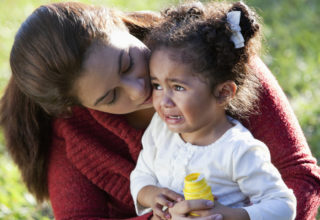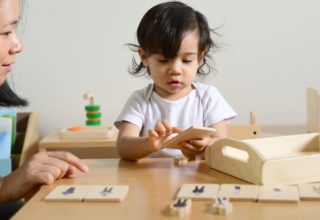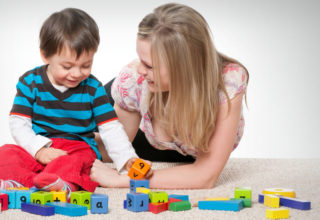Your Playbook for Ages 2 - 3
A curated roadmap by developmental age for navigating the most essential skills and common hurdles of raising children. Evidence-based insights paired with practical tools from early childhood experts.
Social Skills Challenging Behavior Life Readiness Emotional Intelligence Pre-AcademicsSimply saying “Share!” holds little meaning for children. Young children are egocentric and concrete thinkers. Their experience of the world...
Conflict is natural for preschoolers who are just learning about peers and group settings – it is expected, healthy and...
In the heat of an emotional meltdown, it’s hard to remember what to do. So we use *SKOR* for quick recall....
By learning why young children hit – learning what is developmentally going on in their brains when they hit –...
Knowing why a child hits is the first step in handling a challenging ‘hitting’ situation. Next, how should you respond...
Children experience emotions just like adults, but they need support and guidance to: 1) Understand their emotions; and 2) Make...
Tantrums are hard to manage – for everyone. Here’s our checklist for what to do…in the first 5 minutes.
The reality is we have no control over when our child calms down. Parenting and teaching is not quick and...
It takes work and repetition, but indeed, there are things that can be done to pre-empt a tantrum and ways...
‘Sensory processing development’ is vital to understanding how children learn. It is deeply studied among early childhood experts, but not...
Power struggles and harried mornings for both parent and child are normal, and yet not a fun way to start...
#1 daily challenge with children: How to get from A to Z without fighting, yelling or throwing a tantrum? Learn why...
Knowing why transitions are difficult is half the puzzle. The other half is how to get through them. Teachers go...
Learn the strategies, tools and what to say to manage a healthy separation process between you and your child, especially...
The parent/caregiver-child separation process is often an emotional experience, and every child and family experiences it differently. Discover answers to...
Trying to figure out what to look for in a preschool and which questions to ask when visiting schools? Learn...
Are you in the midst of visiting preschools and trying to decipher what to look for in a classroom and...
“It’s not about how smart you are, it’s about how you are smart.” -Howard Gardner
Easy things you can do every day to encourage your toddler to use more language. *Note – Suggestions in this article...
We’re often asked, “How do I know if my child needs speech therapy?” First, listen to your instincts. If you...
Learn the Montessori approach to learning language and how to apply it every day.
Many parents are eager to teach their children basic number concepts at a young age. For a 2-year old, exposure...
Take every opportunity to count…anything, everything! It may feel common sense to us grown-ups, but fluency in talking about numbers...
Some children are naturally drawn to learning letters, while others may not begin to learn letter identification until they are...























